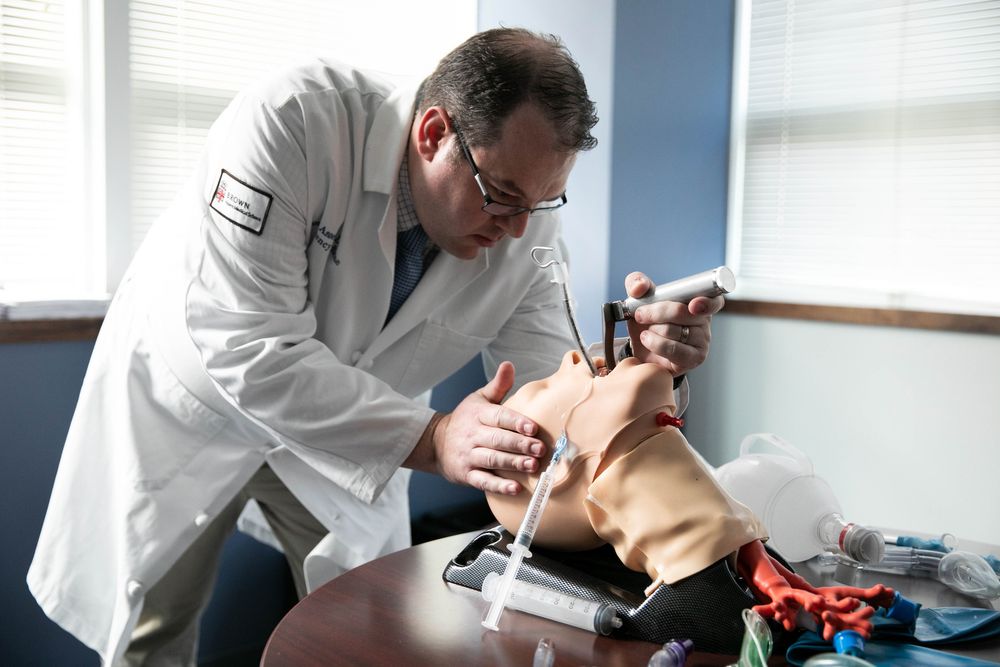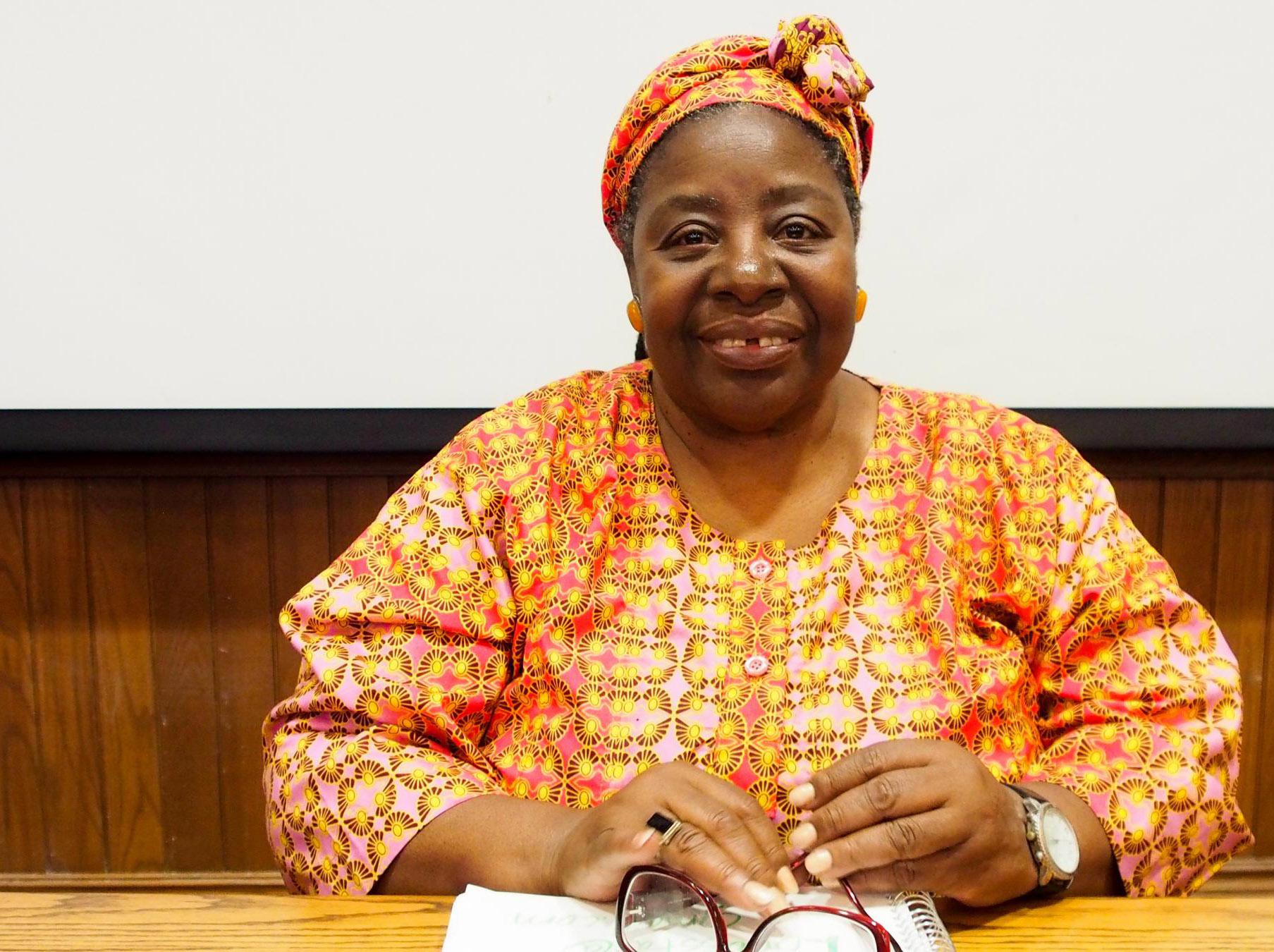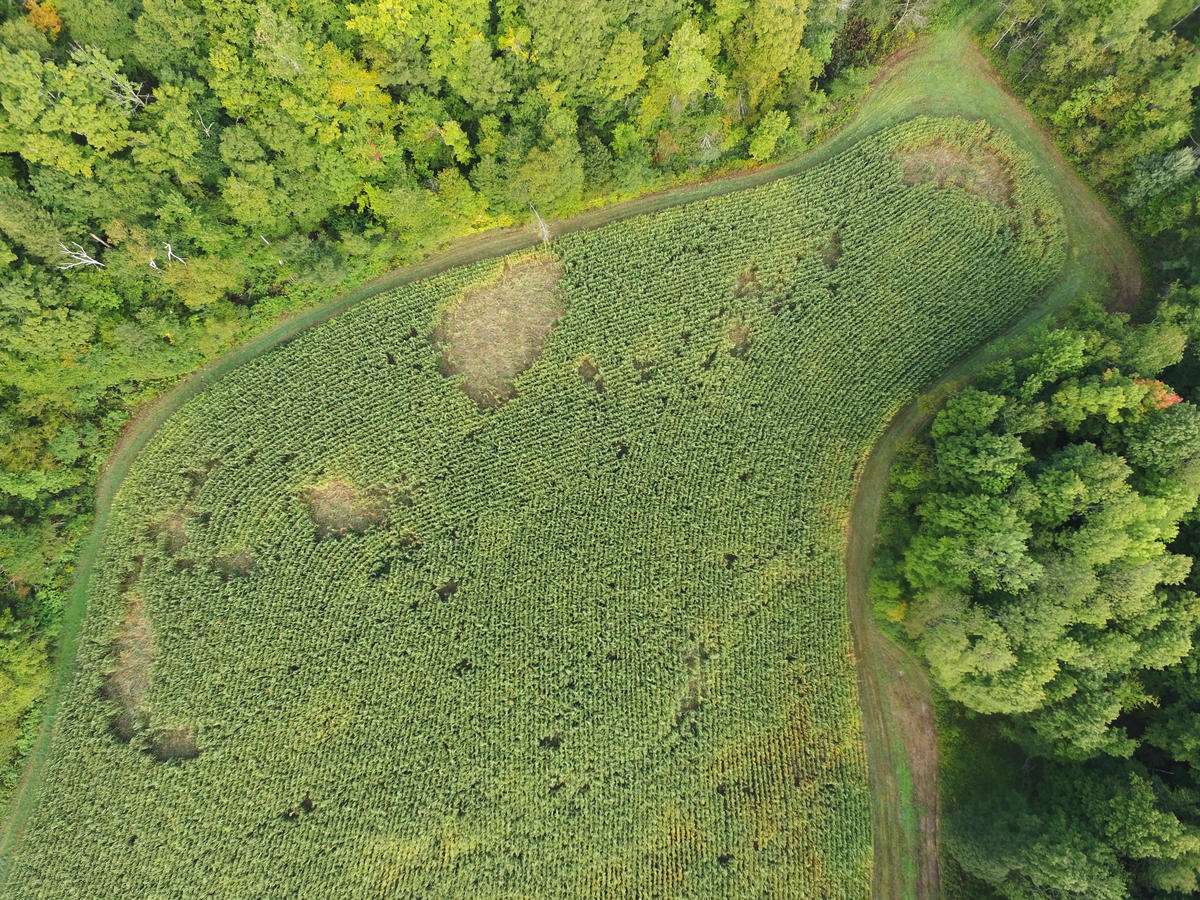Episode 177: Misplaced Breathing Tubes, A Potentially Fatal Medical Error; Choosing To Be Childfree
In 2018, a doctor in Rhode Island discovered EMS crews misplacing breathing tubes, a potentially fatal mistake. This week on NEXT, an investigation from The Public’s Radio and ProPublica into the state’s 911 emergency system. And a black activist talks about the pitfalls of the call-out culture. Plus, as fewer babies are born in the U.S, some adults are choosing to be childfree.
EMS Crews Brought Patients To The Hospital With Misplaced Breathing Tubes. They All Died

In the summer of 2018, Dr. Nick Asselin and his research assistant discovered that patients had been arriving in emergency rooms with misplaced breathing tubes, an often-fatal mistake. (Kayana Szymczak/ ProPublica)
In 2018, a Rhode Island doctor made a horrifying discovery. Several patients had arrived by ambulance in hospital emergency rooms with misplaced breathing tubes. All of them had died. That discovery raised alarms about Rhode Island’s controversial practice of allowing emergency medical technicians to intubate. Lynn Arditi has this story as part of an ongoing investigation into Rhode Island’s 911 emergency system from The Public’s Radio and ProPublica.
Correction: This post previously said misplaced breathing tubes were killing patients. A misplaced breathing tube is potentially fatal but it is not known whether the patients would have survived had the tubes been properly placed.
Choosing To Be Childfree
- Amy Blackstone and her husband Lance in Honduras. (Courtesy of Amy Blackstone)
- Amy Blackstone and her husband Lance. (Courtesy of Amy Blackstone)
- Amy Blackstone. (Jeff Kirlin)
- Amy Blackstone and her husband Lance in Italy. (Courtesy of Amy Blackstone)
Last year, 3.7 million babies were born in the United States. That may sound like a lot of kids, but numbers from the National Center for Health Statistics show birth rates have been declining steadily since 2007. There are a number of reasons for this –like the high cost of raising kids and a decline in teen pregnancies. But Amy Blackstone argues, some people are just choosing to be childfree. Blackstone is a professor of sociology at the University of Maine and author of the book “Childfree by Choice: The Movement Redefining Family and Creating a New Age of Independence,” which came out this year. She recently wrote about her choice not to have children in a commentary on WBUR’s blog Cognoscenti.
You can read more about the choice Blackstone and her husband made to be childfree at their blog, “We’re Not Having A Baby.”
Swastikas On College Campuses Lead To Conversations About Choosing The Right Opponent

Visiting Smith College Professor Loretta Ross. (Ben James / New England Public Radio)
This fall, five swastikas were found written in chalk on a building at the University of Massachusetts in Amherst. A week before that, swastikas were discovered on the Smith College campus in Northampton. Visiting Smith professor Loretta Ross has been taking on neo-Nazis for decades. And after the swastika incident, Ross gave her students an unexpected lesson on choosing your opponent.
VT Farmers Legally Kills Bears Eating Their Corn, But Debate Over Practice Persists

Drone footage of one of Tim Taft’s cornfields in 2018 when he was experiencing massive crop loss due to bears. (Courtesy of Tim Taft)
Vermonters pride themselves on their connection to the land. But sometimes the way one person values the natural world clashes with another person’s belief. Such a tension has been playing out in Huntington, a small valley town south of Burlington, where one dairy farmer has been accused of needlessly killing bears. The farmer says if he didn’t, his entire business could have been in trouble.
Also on this week’s show:
About NEXT
NEXT is produced at Connecticut Public Radio
Host: Shannon Dooling
Producer: Morgan Springer
Senior Director: Catie Talarski
Contributors to this episode: Lynn Arditi, Ben James, Carrie Healy and Liam Elder-Connors.
Music: Todd Merrell, “New England” and “Crazy” by Goodnight Blue Moon, “The Toast” by Adam Ezra Group, “The Evil One” by Kerrin Connolly and “Prologue” by The Mallett Brothers.
New to NEXT? You can find every episode or one you missed within our archives.
We want your feedback! Send critiques, suggestions, questions, and ideas to next@ctpublic.org. Help us spread the word! If you like what you hear, rate and review us on iTunes.
Follow us on Facebook and Twitter.
NEXT is produced at Connecticut Public Radio




